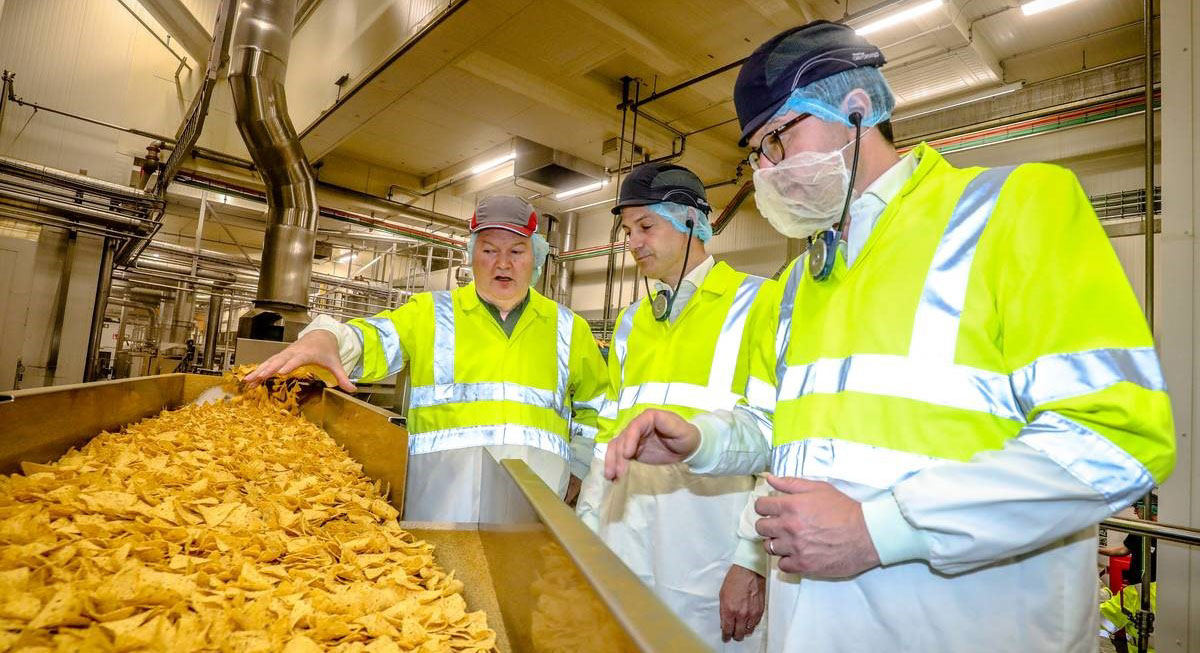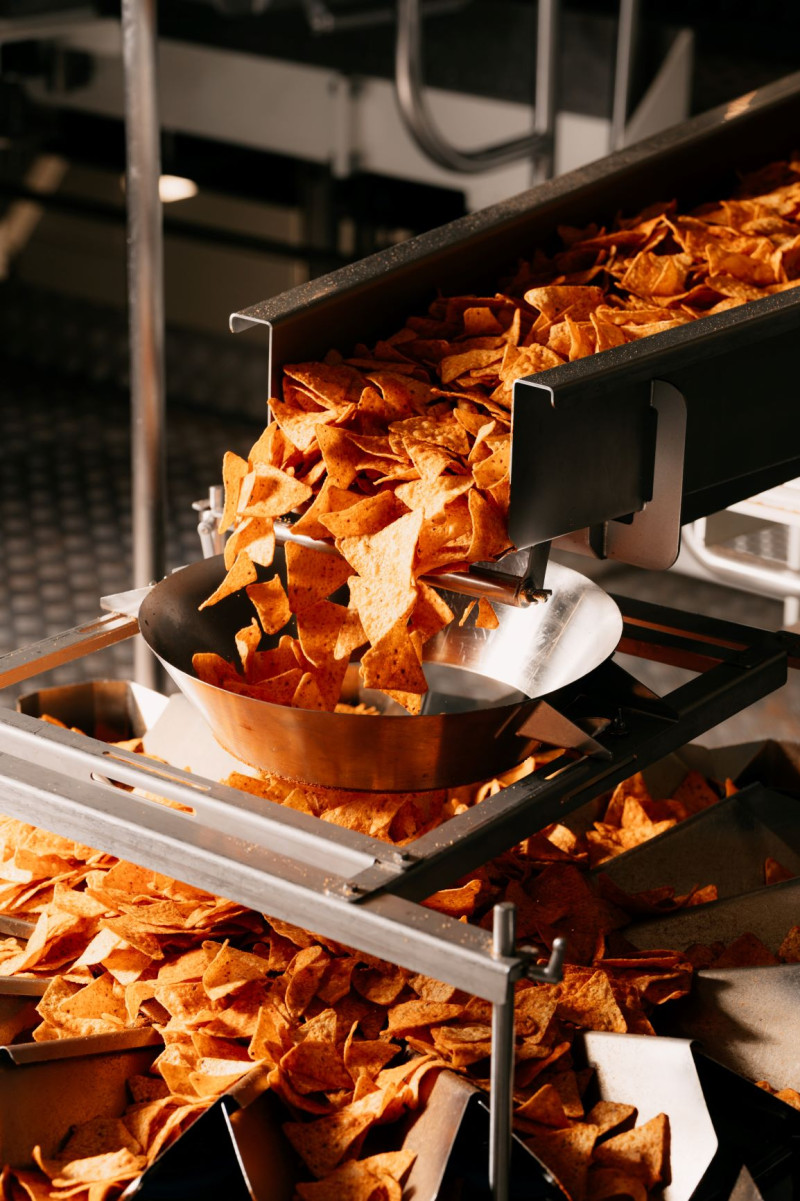PepsiCo is set to expand its crisps factory in Veurne, West Flanders, with plans for new production and personnel facilities, as well as a brand-new warehouse. The company is also committed to making the factory more sustainable, aiming to reduce greenhouse gas emissions by 75% and use eight times less tap water by 2030. This €200 million investment is expected to create 150 new jobs.

Veurne is a key production hub for PepsiCo in Europe, boasting a high-tech snacks plant with nine production lines spanning an area equivalent to eight football pitches. The factory churns out around 83,000 tonnes of crisps annually for popular brands like Lay's, Doritos, and Cheetos, which equates to over 2 million bags daily.
This makes Veurne one of the largest PepsiCo production sites for crisps and snacks in Europe. The company aims to boost production to 115,000 tonnes a year, which will also generate more jobs in the Westhoek region, increasing the workforce in Veurne by about 150 people to a total of 800. They produce for 14 countries, with Belgium, France, and the Netherlands being the primary markets. PepsiCo maintains a strong partnership with local potato growers, who are among its main suppliers.

New warehouse, investment in production processes and staff facilities
PepsiCo is constructing a new warehouse to support its growth ambitions. This warehouse will be directly linked to the factory via a new bridge spanning over 100 metres.
Additionally, the company is investing in its production processes, aiming to increase output by 35%. New facilities are being built to accommodate the anticipated growth in staff.
Investments in a sustainable future: phasing out fossil fuels and optimising water consumption
PepsiCo plans to significantly reduce its reliance on fossil fuels, primarily gas, by electrifying its production site by 2030 and utilising renewable energy sources. To achieve this, the company needs to increase its electricity capacity fivefold, from 4 to 20 mega-volt-amperes (MVA). PepsiCo acknowledges it cannot achieve this goal alone and is therefore relying on essential investments in local energy infrastructure.
Moreover, PepsiCo already announced its first investment in 2022, which focuses on optimising water consumption through smart real-time monitoring, reusing production water, and collecting and utilising rainwater and moisture from potatoes. The aim is to reduce tap water usage by a factor of eight by 2030, from 3.4 litres to 0.4 litres per kilogram of finished product.
Miet Delmotte, General Manager of PepsiCo BeLux, stated, “We are investing significantly in a strong future for our Veurne plant, which is one of PepsiCo's largest crisps plants in Europe. Due to its strategic location between France, the UK, and the Netherlands, we have chosen our Veurne plant for these crucial investments. From the Westhoek, our 650 employees deliver around 2 million bags of crisps to 14 countries every day. We aim to expand this, creating 150 additional jobs. Sustainability is central to our future plans, with a large portion of our investments focused on reducing our dependence on fossil fuels and optimising our water consumption.”

